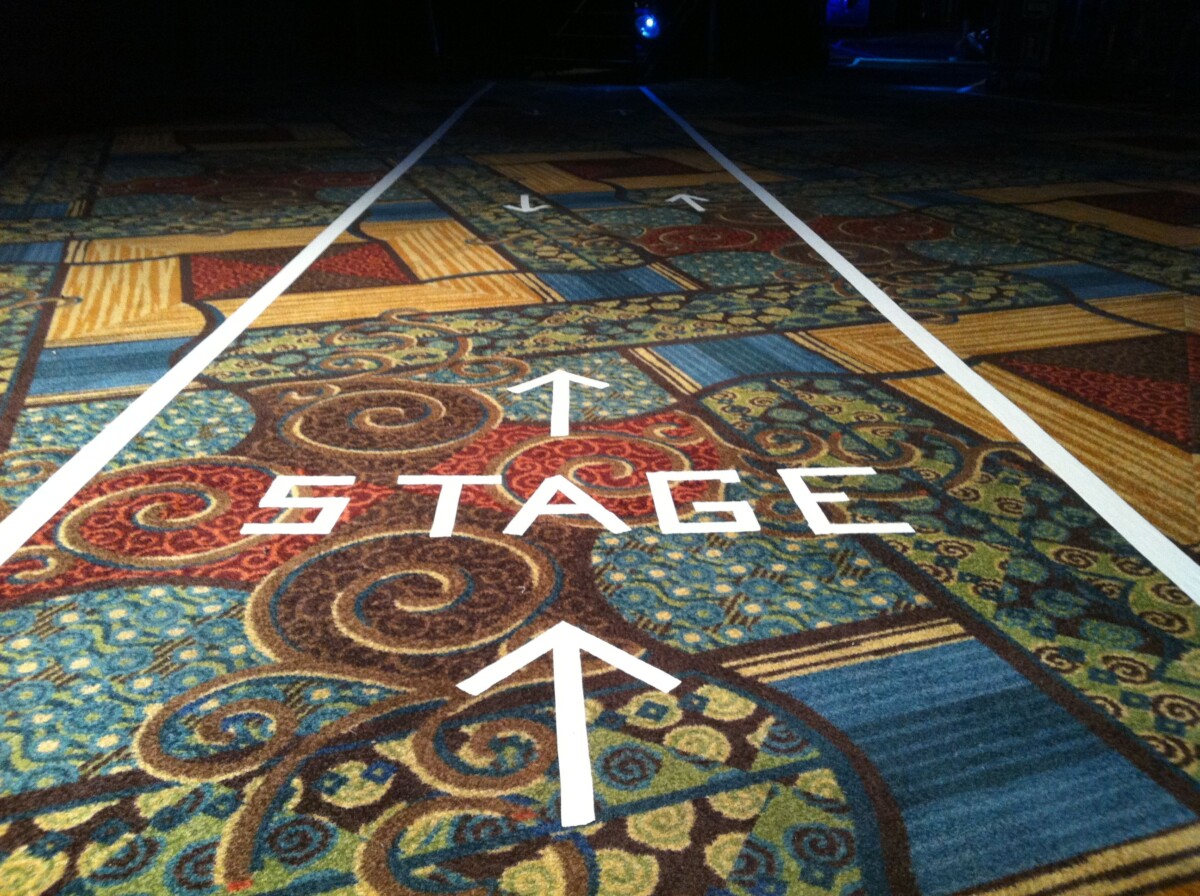
What’s the difference between event staging vs. stage craft?
To give this context, we asked this question previously: Are you planning a meeting or putting on a show? It queries if an event needs a simple AV equipment setup or a professionally executed and choreographed production.
While the former might need event staging, the latter needs stage craft. Yes, they sound similar, but these concepts play distinct roles in creating unforgettable experiences.
Consider the nuances that set them apart and how they contribute to the success of any event.
Event staging is the all-encompassing plan of an event, orchestrating the entire physical environment to create a cohesive and impactful experience. It ensures every element works in harmony to achieve the event’s goals.
When event producers talk about staging, they’re referring to the holistic approach of designing and setting up the event space. This includes everything from the layout of the venue to the technical setup and aesthetic choices.
Key aspects of event staging include:
Event staging is about creating a seamless flow, from the moment attendees arrive until the last person leaves. It’s the art of transformation, turning empty spaces into immersive environments that captivate and engage.
While event staging paints with broad strokes, stage craft focuses on the finer details of the stage itself. It’s a specialized field that combines technical expertise with artistic flair to create the focal point of many events.
Stage craft professionals build sets, rig lighting, and ensure that every performance is smoothly executed. The realm of stage craft includes:
Stage craft is where creativity meets precision. It requires a deep understanding of materials, techniques, and safety protocols to create stages that are not just visually stunning but also functional and safe.
While event staging and stage craft are distinct disciplines, they do work hand in hand to create successful events. Event staging provides the overarching vision and structure, while stage craft brings specialized expertise to execute the centerpiece of many events – the stage itself.
For example, an event producer might determine that a corporate conference needs a large central stagewhere the audience is completely immersed in the proceedings. The stage craft team would then step in to design and build these stages, ensuring they meet the specific requirements of the performances or presentations planned.
Understanding the difference between event staging vs. stage craft is crucial for anyone involved in event production.
Event staging is about the big picture – creating a cohesive environment that serves the event’s purpose. Stage craft, on the other hand, is the specialized art of bringing the stage itself to life.
Both are essential components of successful events, working together to create experiences that audiences will remember long after the curtain falls.